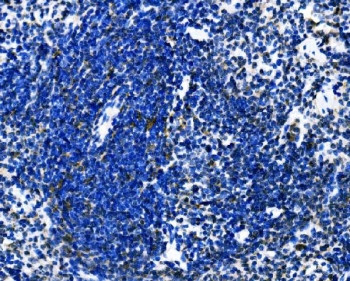Cookie preferences
This website uses cookies, which are necessary for the technical operation of the website and are always set. Other cookies, which increase the comfort when using this website, are used for direct advertising or to facilitate interaction with other websites and social networks, are only set with your consent.
Configuration
Technically required
These cookies are necessary for the basic functions of the shop.
"Allow all cookies" cookie
"Decline all cookies" cookie
CSRF token
Cookie preferences
Currency change
Customer-specific caching
FACT-Finder tracking
Individual prices
Selected shop
Session
Comfort functions
These cookies are used to make the shopping experience even more appealing, for example for the recognition of the visitor.
Note
Show the facebook fanpage in the right blod sidebar
Statistics & Tracking
Affiliate program
Conversion and usertracking via Google Tag Manager
Track device being used
| Item number | Size | Datasheet | Manual | SDS | Delivery time | Quantity | Price |
|---|---|---|---|---|---|---|---|
| NSJ-RQ6850 | 100 µg | - | - |
3 - 10 business days* |
755.00€
|
If you have any questions, please use our Contact Form.
You can also order by e-mail: info@biomol.com
Larger quantity required? Request bulk
You can also order by e-mail: info@biomol.com
Larger quantity required? Request bulk
0.5mg/ml if reconstituted with 0.2ml sterile DI water. C-type lectin domain family 7 member A or... more
Product information "Anti-Dectin 1 / Clec7a"
0.5mg/ml if reconstituted with 0.2ml sterile DI water. C-type lectin domain family 7 member A or Dectin-1 is a protein that in humans is encoded by the CLEC7A gene. This gene encodes a member of the C-type lectin/C-type lectin-like domain (CTL/CTLD) superfamily. The encoded glycoprotein is a small type II membrane receptor with an extracellular C-type lectin-like domain fold and a cytoplasmic domain with an immunoreceptor tyrosine-based activation motif. It functions as a pattern-recognition receptor that recognizes a variety of beta-1,3-linked and beta-1,6-linked glucans from fungi and plants, and in this way plays a role in innate immune response. Alternate transcriptional splice variants, encoding different isoforms, have been characterized. This gene is closely linked to other CTL/CTLD superfamily members on chromosome 12p13 in the natural killer gene complex region. Protein function: Lectin that functions as pattern recognizing receptor (PRR) specific for beta-1,3-linked and beta-1,6-linked glucans, which constitute cell wall constituents from pathogenic bacteria and fungi (PubMed:11544516, PubMed:17159984, PubMed:15213161). Necessary for the TLR2-mediated inflammatory response and activation of NF-kappa-B: upon beta-glucan binding, recruits SYK via its ITAM motif and promotes a signaling cascade that activates some CARD domain-BCL10-MALT1 (CBM) signalosomes, leading to the activation of NF-kappa-B and MAP kinase p38 (MAPK11, MAPK12, MAPK13 and/or MAPK14) pathways which stimulate expression of genes encoding pro-inflammatory cytokines and chemokines (PubMed:12719479, PubMed:15731053, PubMed:16825490, PubMed:32358020). Enhances cytokine production in macrophages and dendritic cells (PubMed:15845454). Mediates production of reactive oxygen species in the cell (PubMed:12719479, PubMed:15731053, PubMed:16825490). Mediates phagocytosis of C.albicans conidia (PubMed:15729357, PubMed:16825490). Binds T-cells in a way that does not involve their surface glycans and plays a role in T-cell activation (PubMed:10779524). Stimulates T-cell proliferation (PubMed:10779524). Induces phosphorylation of SCIMP after binding beta-glucans (PubMed:27288407). [The UniProt Consortium]
| Keywords: | Anti-Bgr, Anti-CD369, Anti-Dectin-1, Anti-Beta-glucan receptor, Anti-DC-associated C-type lectin 1, Anti-C-type lectin superfamily member 12, Anti-C-type lectin domain family 7 member A, Anti-Dendritic cell-associated C-type lectin 1, Dectin 1 Antibody / |
| Supplier: | NSJ Bioreagents |
| Supplier-Nr: | RQ6850 |
Properties
| Application: | WB, IHC (paraffin), FC, Direct ELISA |
| Antibody Type: | Polyclonal |
| Conjugate: | No |
| Host: | Rabbit |
| Species reactivity: | mouse |
| Immunogen: | Recombinant mouse protein (amino acids Q17-L244) |
| Format: | Purified |
Database Information
| UniProt ID : | Q6QLQ4 | Matching products |
Handling & Safety
| Storage: | +4°C |
| Shipping: | +4°C (International: +4°C) |
Caution
Our products are for laboratory research use only: Not for administration to humans!
Our products are for laboratory research use only: Not for administration to humans!
Information about the product reference will follow.
more
You will get a certificate here
Viewed










